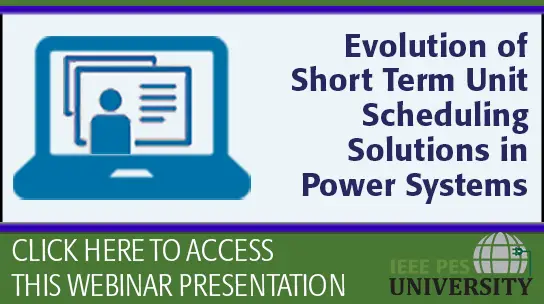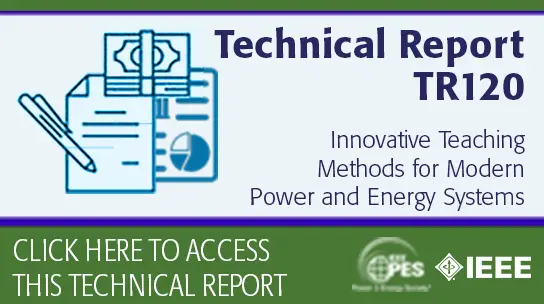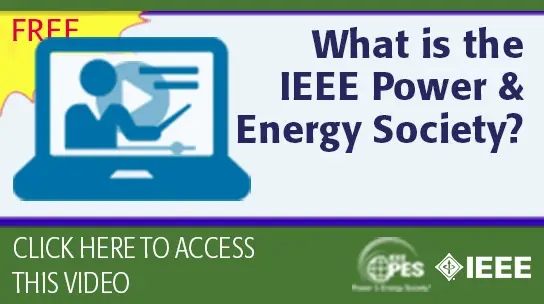TESC 2019 - Resilience
Bishnu Bhattarai, Teja Kuruganti, Ebrahim Vaahedi, Micheal Starke
-
Members: FreePES
IEEE Members: $10.00
Non-members: $20.00Pages/Slides: 57
Panel
10 Jul 2019
Transactive Energy Systems for Contingencies - Transactive energy systems (TES) have been successfully demonstrated to achieve an economic market efficiency during normal grid operations. Current TES designs are based on marginal benefits to the buyer and marginal cost to the seller and are designed meet to the technical needs of the power system during normal economic operations. However, TES designs for contingency situations have not been adequately explored. Because power system operations involve risks and uncertainties ranging from forecast errors to natural disasters (e.g., hurricanes, tornados, cyberattacks) which can potentially affect large portions of the system, TES approaches that can engage DERs during grid contingencies could add benefits to both DERs and system operators. In this study, we first investigate potential TES mechanisms to be used for contingency conditions.
Improving Distribution System Resilience Using Responsive Loads - We present a novel method to improve distribution resilience by accessing the flexibility in demand resources using decentralized transactive control along with intelligent distribution reconfiguration. The implementation of the decentralized control of residential DERs to provide grid services centers around the ability to do near-real-time estimation (of flexibility), optimization (guarantee response from DERs), and robust control (reliable actuation to affect the grid parameters of interest in a given use case).
Transactive Microgrids: Creating Resilience and Economic Benefits - In this presentation, a technology framework is provided which facilitates the design and deployment of transactive microgrids capable of achieving the above goals followed by some use cases demonstrating the resiliency and economic benefits that such microgrids are capable of generating.
Agent Based Framework for Supporting Transactive Power Electronic Systems - In this paper, the concept of a framework based on an agent-based interface for power stages in a power electronic system is presented. The presented concept or agent system is able to consider any number of different types of sources, types of converters, communication protocols, embedded decision making to support transactive, and hierarchy for large system integration. The concept is presented through several examples including the implementation on an actual physical system.
Improving Distribution System Resilience Using Responsive Loads - We present a novel method to improve distribution resilience by accessing the flexibility in demand resources using decentralized transactive control along with intelligent distribution reconfiguration. The implementation of the decentralized control of residential DERs to provide grid services centers around the ability to do near-real-time estimation (of flexibility), optimization (guarantee response from DERs), and robust control (reliable actuation to affect the grid parameters of interest in a given use case).
Transactive Microgrids: Creating Resilience and Economic Benefits - In this presentation, a technology framework is provided which facilitates the design and deployment of transactive microgrids capable of achieving the above goals followed by some use cases demonstrating the resiliency and economic benefits that such microgrids are capable of generating.
Agent Based Framework for Supporting Transactive Power Electronic Systems - In this paper, the concept of a framework based on an agent-based interface for power stages in a power electronic system is presented. The presented concept or agent system is able to consider any number of different types of sources, types of converters, communication protocols, embedded decision making to support transactive, and hierarchy for large system integration. The concept is presented through several examples including the implementation on an actual physical system.
Chairs:
Farrokh Rahimi


